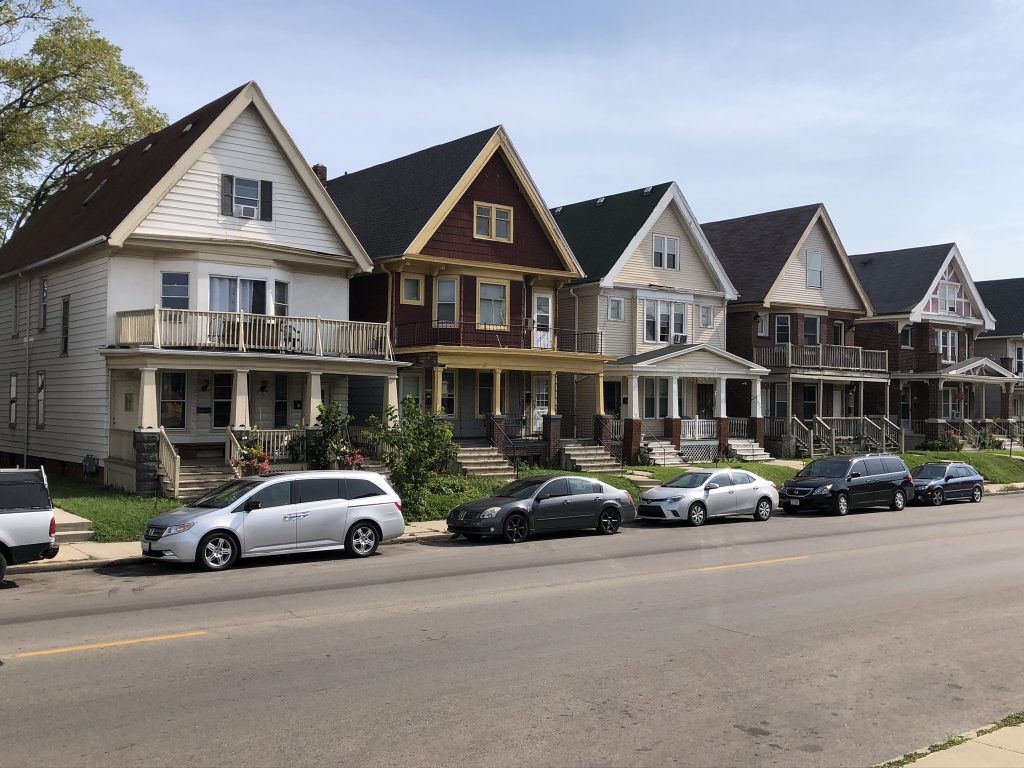Predatory Landlords Buying Up Milwaukee Properties
Study finds out-of-state landlords now own 23% of rental houses in majority Black wards.
For the past 10 years and especially throughout the pandemic, predatory investors have been crowding out would-be homebuyers in Milwaukee.
Housing advocates say this phenomenon hurts not only low- to moderate-income homebuyers, but renters and ultimately neighborhoods as well.
“Looking back at what made Milwaukee special, it was homeownership,” said Wyman Winston principal consultant for Neighborhood Wealth and former executive director of the Wisconsin Housing and Economic Development Authority, or WHEDA. “As homeowners left, we saw the quality of housing leave along with the physical and economic decline of neighborhoods.”
A series of reports produced in the last few years associate investor-owned rental properties with poorer maintenance, higher health risks and higher eviction rates when compared to those with homeowners and local landlords.
According to a report by John D. Johnson, a research fellow in the Lubar Center for Public Policy Research and Civic Education at Marquette University Law School, out-of-state investors have targeted majority Black neighborhoods in Milwaukee.
Johnson found that out-of-state landlords now own 23.4% of rental houses in majority Black wards, an 8.7 percentage point leap since 2018. Yet from 2018 through mid-2022, the number of out-of-state-owned houses in majority white neighborhoods fell by nearly 100, the report said.
Winston said this is happening because Milwaukee historically has had low real estate prices compared to other parts of the country. This was a benefit to Milwaukeeans until the last market crash when new real estate entities came into being. These entities buy properties in large numbers, particularly single-family homes, then rent them out.
“From an investors point of view, buying in Milwaukee is just dirt cheap, and you can get a lot of money from your money,” Winston said. “Second, investors are taking the cash flow that is revenue from their tax-structured real estate deals and investing them here, and in many respects, that money is like grants, which mean it’s basically protected.”
Is the criticism warranted?
But some question the criticism of out-of-state investors.
“As local investors, we may not be in favor of out-of-state investors. And there is a concern about there being no local presence to serve tenants,” said Heiner Giese, an attorney for the Apartment Association of Southeastern Wisconsin. “But if an investor buys a property that was already being rented out, how does that hurt the market?”
Giese said although some look at investors as competition for homebuyers, you could also look at them as help for renters.
“If the housing market is bad and homes are overpriced and interest rates are going up, it could be beneficial for people who can afford to rehab these homes to buy them,” he said.
Dorothy York, the vice president of real estate for Acts Housing, a nonprofit that helps low-income families become homeowners, said it’s important not to paint all investors in the same light.
“Predatory investors are often out-of-state companies that come into usually low-income neighborhoods, take advantage of the community and have destabilizing effects on the neighborhood,” she said. “But we’ve had investors in Milwaukee for years that have been providing safe affordable rental units to people and those are essential.”
York said Milwaukee needs more owner-occupied housing.
“Homeownership is not only a wealth-building and stabilizing opportunity for people, it’s also a mind shift,” she said. “When you own a piece of your community, you’re more likely to take ownership and report those negative things that make your neighborhood unattractive.”
Many renters want to be homeowners but struggle because of investors and a low housing stock, advocates say.
To help them, groups have launched initiatives to create more homeowners in Milwaukee.
Acts Housing, for example, recently started an acquisition fund to even the market for Milwaukeeans looking to purchase homes. The fund will buy homes and resell them at affordable prices to residents.
But housing advocates say more can and should be done.
Winston suggests creating a rental housing registry.
“The city needs a rental housing registry that will allow them to know who owns what and how they are doing,” he said. “Right now, they have no real way of knowing what’s going on.”
He also suggests co-ops and land trusts for homeowners.
“These will help build generational homeownership,” Winston said, adding it also would “eliminate zombie properties by creating a support system for homeowners when they are struggling or in need.”
A co-op is a form of homeownership in which residents collectively own and control a housing unit, so expenses are split between everyone who resides in that unit.
Land trusts are nonprofit organizations governed by a board of residents and public representatives that provide community assets and shared equity homeownership opportunities.
For more information
York suggests considering Acts Housing if you are looking to sell your home.
“Your home would be going to a local family,” she said. “We may even pay more, and you’d be benefiting the community.”
Out-of-state landlords are increasingly buying up property in Milwaukee. Here’s what that means for our neighborhoods. was originally published by the Milwaukee Neighborhood News Service.
If you think stories like this are important, become a member of Urban Milwaukee and help support real, independent journalism. Plus you get some cool added benefits.






















Mr Giese, it hurts the market by driving up ohme or rent prices higher than what can be afforded by working-class people. That forces people to become renters. That of course drives up rents. And of course, that is what AASEW wants. I wish the AASEW was about solving the problems that come with landlords owning everything.